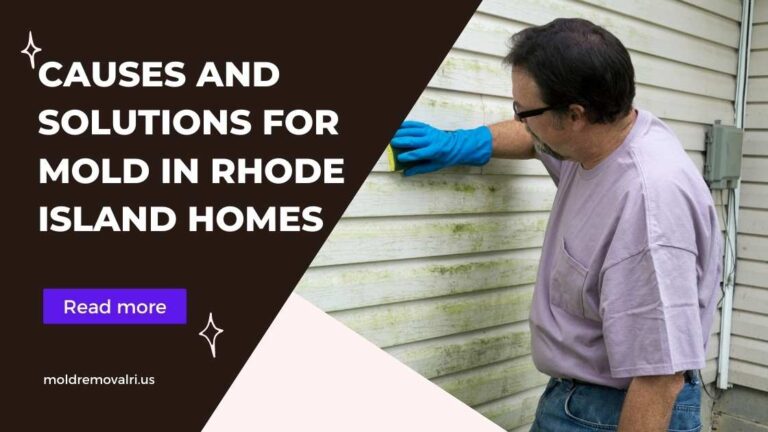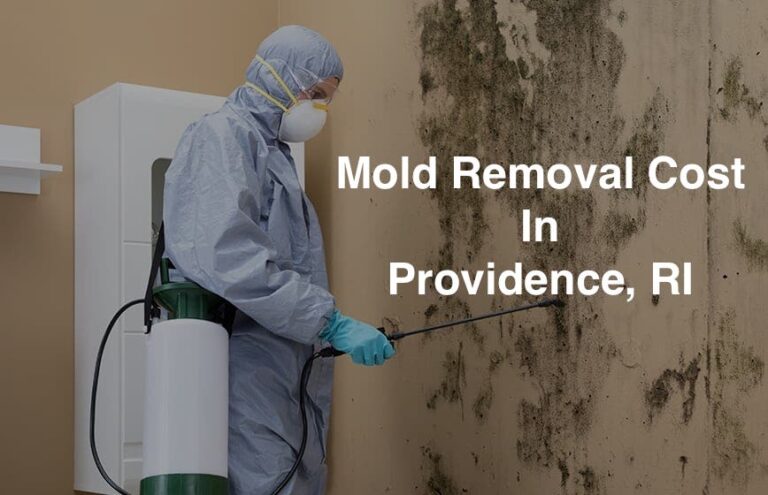Mold is a pesky problem that no one wishes to encounter. It’s a health hazard, causes damage to property, and is generally undesirable. Yet, due to varying weather conditions, general wear and tear, or unforeseen circumstances, mold can find its way into rental properties.
As such, an essential question emerges: how long does a landlord have to fix a mold problem in Rhode Island? This article delves into the specifics of the laws and regulations in Rhode Island regarding this issue, helping tenants understand their rights and landlords understand their responsibilities.
| Steps in Process | Approximate Timeline |
|---|---|
| Tenant discovery of mold | Day 0 |
| Tenant notifies the landlord (preferably in writing) | Day 0 – Day 1 |
| Landlord acknowledges the notification | Day 1 – Day 2 |
| Landlord begins taking action (Inspection, hiring professionals, etc.) | Day 2 – Day 4 |
| Mold remediation begins | Within 1-2 weeks |
| Mold problem fully resolved | Dependent on severity, but typically within a month |
Please note that the timeline can vary depending on the severity of the mold problem, the response of the landlord, and the availability of professional mold remediation services. These are estimated timelines based on what is generally considered “reasonable” timeframes, but the actual timeline may vary. It is crucial to maintain open and consistent communication between the tenant and the landlord throughout the process.
Additionally, the landlord is expected to work continuously towards resolving the problem after it has been reported. If the landlord fails to act within a reasonable time, the tenant may consider legal options like withholding rent or terminating the lease. However, any such action should be taken under the guidance of a legal professional to ensure compliance with state law.
Understanding Mold: The Silent Intruder
Before we delve into the legalities, it’s essential to understand what mold is and why it’s a problem. Mold is a type of fungus that grows in damp, humid areas, thriving on organic material. When left untreated, mold can cause property damage and potential health risks, including allergies, asthma, and other respiratory conditions. As such, addressing mold problems promptly and effectively is crucial to maintaining a healthy living environment.
Landlord Responsibilities: The Legal Framework in Rhode Island
In the state of Rhode Island, the Residential Landlord and Tenant Act (R.I. Gen. Laws § 34-18) serves as the overarching framework for landlord and tenant responsibilities. Although it doesn’t specifically mention mold, it clearly outlines the obligations of landlords in maintaining safe and habitable premises.
Under Section 34-18-22, the landlord has a responsibility to:
- Comply with all applicable codes affecting health and safety
- Make all repairs and do whatever is necessary to put and keep the premises in a fit and habitable condition
- Keep all common areas of the premises in a clean and safe condition
- Maintain in good and safe working order and condition all electrical, plumbing, sanitary, heating, ventilating, and other facilities and appliances
While the Act does not explicitly cite mold-related issues, the implied responsibility falls under these requirements.
Let’s look at the landlord’s duties in detail
- Comply with Health and Safety Codes: Landlords must abide by housing, health, and safety codes, which include keeping the premises free from dampness and molds that can impact a tenant’s health.
- Repair and Maintenance: Landlords are responsible for ensuring the rental unit is safe and habitable. This includes addressing any mold issues that arise promptly to prevent further damage or health risks.
- Keeping Common Areas Clean: This provision means landlords are responsible for ensuring common areas are not only clean but also free from mold infestation.
- Maintenance of Facilities: This includes ensuring proper ventilation and controlling humidity levels to prevent mold growth. If the mold problem is due to leaky pipes, roofs, or windows, it’s the landlord’s responsibility to fix these issues.
| Section | Obligation | Interpretation Involving Mold |
|---|---|---|
| 34-18-22 (1) | Comply with all applicable codes affecting health and safety | Abide by housing, health, and safety codes, which could imply keeping the premises free from dampness and molds |
| 34-18-22 (2) | Make all repairs and do whatever is necessary to put and keep the premises in a fit and habitable condition | Address mold issues that arise promptly to prevent further damage or health risks |
| 34-18-22 (3) | Keep all common areas of the premises in a clean and safe condition | Ensure common areas are not only clean but also free from mold infestation |
| 34-18-22 (4) | Maintain in good and safe working order and condition all electrical, plumbing, sanitary, heating, ventilating, and other facilities and appliances | Control humidity levels to prevent mold growth and fix issues like leaky pipes, roofs, or windows |
As with any legal matter, if a landlord fails to adhere to these responsibilities, a tenant may have the right to take legal action. It’s always a good idea for both landlords and tenants to consult with a lawyer to fully understand the specifics of the Residential Landlord and Tenant Act, how it applies to mold issues, and what their rights and responsibilities are under Rhode Island law.
Notification and Action: The Key Components
Given the lack of a specific timeframe, the general rule of thumb is that once a landlord is notified of a mold issue, they should address it as soon as possible. As a tenant, you should provide written notification to your landlord about the mold problem, keeping a copy for your records. Upon receiving the notification, landlords are expected to act promptly.
What ‘Promptly’ Means: Legal Interpretations
The term “promptly” is inherently vague, and its interpretation can vary depending on the situation. However, court precedents and tenant rights advocates suggest that landlords should begin taking steps to remediate mold within a “reasonable” time after notification, typically between 24-48 hours. This doesn’t mean the problem has to be fully resolved within this time, but landlords should at least start the process, such as by scheduling a mold inspection or contacting a remediation company.
When Landlords Don’t Act: Tenant’s Rights and Recourses
Should a landlord fail to address a mold problem within a reasonable time, tenants in Rhode Island have a few possible courses of action. These can range from withholding rent, repairing and deducting the costs from the rent, to even terminating the lease in severe cases. However, before taking any of these steps, it’s advisable to seek legal advice to understand the potential implications and ensure you’re acting within your rights.
Conclusion
Mold can be a formidable adversary, but with a clear understanding of the laws and obligations, both landlords and tenants can effectively tackle this issue. While Rhode Island laws don’t specify an exact timeline for mold remediation, they stress the necessity of maintaining a fit and habitable living environment. For landlords, this means acting promptly to address mold problems once they’re aware of them. For tenants, it means understanding their rights and the potential recourses available should their landlords fail to act appropriately.
In the end, effective communication, swift action, and mutual respect between landlords and tenants can go a long way in keeping rental properties in Rhode Island mold-free and enjoyable for everyone.






